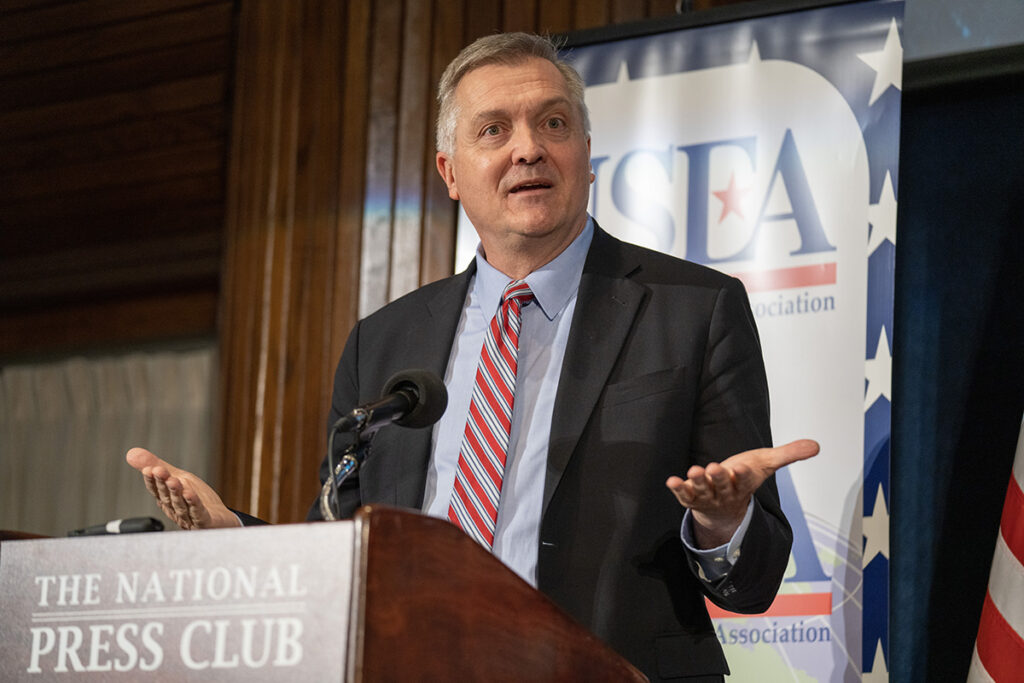
Exciting new grid investments lie ahead, thanks to significant support from the federal government, but policymakers must be sure to prioritize reliability to ensure a successful energy transition, NRECA CEO Jim Matheson told industry leaders Thursday in Washington, D.C.
“We talk about all of the change in the energy industry, but I’ll tell you something that hasn’t changed for us—job one is keeping the lights on,” Matheson said in his address before the U.S. Energy Association’s 19th Annual State of the Energy Industry Forum. “I fear that people in the policy world are not recognizing the importance of reliability.”
Rolling blackouts in nine states during the December holidays demonstrated how vulnerable the grid and power supplies are to weather spikes and why any transition to new energy resources must be properly managed, he said.
NRECA raises the issue of reliability at every turn, he added, because federal agencies can draft rules that inadvertently harm the grid.
“This is something my membership is concerned about,” Matheson said. “We understand the opportunity of new technologies that are available for the future, and we are excited about them. But when you talk about a transition, they are never totally smooth.”
Matheson also lauded historic wins in Congress last year, including direct-pay tax incentives for co-op energy investments and a $9.7 billion voluntary grant and loan program exclusively for co-ops to buy or build clean energy systems. The program will be administered by the U.S. Department of Agriculture.
NRECA has urged the government to structure those programs to account for “the diversity of circumstances of co-ops across the country,” he told the group. “Keep it simple. Keep it flexible.”
Matheson noted that the $1.2 trillion Infrastructure Investment and Jobs Act contains some two dozen initiatives of interest to co-ops, which led NRECA to set up a resource hub for members to learn the latest details and consortia on five areas: electric vehicles, microgrids, cyber and physical security, smart grids and data, and natural hazards.
“As we continue to electrify the economy, the grid is going to be even more important and all the more stressed,” said Matheson.
“We pride ourselves in the co-op world as being the truth tellers, and we don’t gloss over the words ‘affordability’ and ‘reliability.’ It’s our mission every day and what we do for our members.”
Cathy Cash is a staff writer for NRECA.